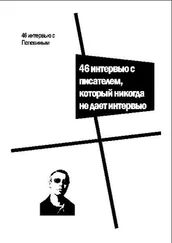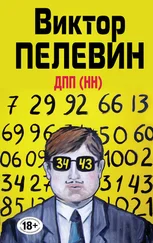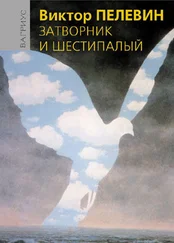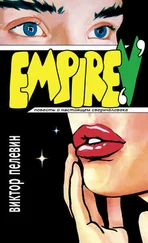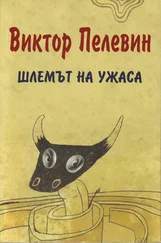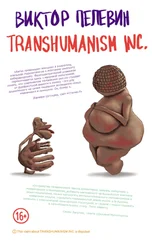Виктор Пелевин - Buddha's Little Finger
Здесь есть возможность читать онлайн «Виктор Пелевин - Buddha's Little Finger» весь текст электронной книги совершенно бесплатно (целиком полную версию без сокращений). В некоторых случаях можно слушать аудио, скачать через торрент в формате fb2 и присутствует краткое содержание. Жанр: Современная проза, на английском языке. Описание произведения, (предисловие) а так же отзывы посетителей доступны на портале библиотеки ЛибКат.
- Название:Buddha's Little Finger
- Автор:
- Жанр:
- Год:неизвестен
- ISBN:нет данных
- Рейтинг книги:5 / 5. Голосов: 1
-
Избранное:Добавить в избранное
- Отзывы:
-
Ваша оценка:
- 100
- 1
- 2
- 3
- 4
- 5
Buddha's Little Finger: краткое содержание, описание и аннотация
Предлагаем к чтению аннотацию, описание, краткое содержание или предисловие (зависит от того, что написал сам автор книги «Buddha's Little Finger»). Если вы не нашли необходимую информацию о книге — напишите в комментариях, мы постараемся отыскать её.
Buddha's Little Finger — читать онлайн бесплатно полную книгу (весь текст) целиком
Ниже представлен текст книги, разбитый по страницам. Система сохранения места последней прочитанной страницы, позволяет с удобством читать онлайн бесплатно книгу «Buddha's Little Finger», без необходимости каждый раз заново искать на чём Вы остановились. Поставьте закладку, и сможете в любой момент перейти на страницу, на которой закончили чтение.
Интервал:
Закладка:
Zherbunov gave me a sideways glance, but he said nothing.
A narrow snow-covered path led away from the gates of the hospital. At first it wound its way through a sparse birch wood, and then for ten minutes it led along the edge of the wood before plunging back into the trees. There were no traces of civilization to be seen anywhere, apart from the thick cables sagging down between identical metal masts that looked like the skeletons of immense Red Army men in their helmets. Suddenly the forest came to an end, and we found ourselves beside a set of wooden steps leading up to a railway platform.
The only structure on the platform was a brick shed with a feebly smoking chimney that bore a remarkable similarity to the, gate-lodge at the hospital. The thought even occurred to me that this might be the dominant form of architecture in this unfamiliar world - but of course, I still had too little experience to make such broad generalizations. Zherbunov went over to a little window in the hut and bought me a ticket.
‘Okay then,’ he said, ‘here’s your train coming. Fifteen minutes to Yaroslavl Station.’
‘Splendid,’ I replied.
‘Looking forward to the ladies, then?’ he sneered.
I was only a little shocked by the directness of the question. From my long experience of associating with soldiers, I knew that among the lower classes the shameless discussion of the intimate side of life fulfils approximately the same function as conversation about the weather for the upper classes.
I shrugged. ‘I cannot say that I have pined too badly for what you call ladies, Zherbunov.’
‘Why’s that?’ Zherbunov asked.
‘Because.’ I replied, ‘ail women suck.’
‘That’s true enough,’ he said with a sigh. ‘But all the same, what are you going to do? You’ve got to work somewhere, haven’t you?’
‘I do not know.’ I replied. ‘I can write poetry, I can command a cavalry squadron. Something will turn up.’
The electric train came to a halt, and its doors opened with a hiss.
‘That’s it, then,’ said Zherbunov, proffering me a crablike hand. ‘Be seeing you.’
‘Goodbye.’ I said. ‘And please give my very best wishes to my wardmates.’
As I shook his hand, I suddenly noticed a tattoo which I had not seen before on his wrist. It was a blurred blue anchor, and above it I could just make out the letters ‘baltflot’ - they were very pale and indistinct, as though someone had tried to erase them.
Entering the carriage, I sat down on a hard wooden bench. The train set off and Zherbunov’s stocky figure drifted past the window and disappeared for ever into non-existence. At the very end of the platform, protruding above the barrier on two metal poles I saw a board bearing the inscription: ‘LOZOVAYA JUNCTION’.
Tverskoi Boulevard appeared exactly as it had been when I last saw it - once again it was February, with snowdrifts everywhere and that peculiar gloom which somehow manages to infiltrate the very daylight. The same old women were perched motionless on the benches, watching over brightly dressed children engaged in protracted warfare among the snowdrifts; above them, beyond the black latticework of the wires, the sky hung down close to the earth as though it were trying to touch it. Some tilings, however, were different, as I noticed when I reached the end of the boulevard. The bronze Pushkin had disappeared, but the gaping void that had appeared where he used to stand somehow seemed like the best of all possible monuments. Where the Strastnoi Monastery had been, there was now an empty space, with a sparse scattering of consumptive trees and tasteless street lamps.
I sat on a bench opposite the invisible statue and lit a cigarette with a short yellow tip which had been kindly given to me by an officer wearing a uniform that looked as though it belonged in some operetta. The cigarette burnt away as quickly as a Bickford fuse, leaving me with a vague taste of saltpetre in my mouth.
There were several crumpled bills in my pocket - in appearance they differed little from the rainbow-coloured hundred-rouble Duma notes which I remembered so well, although they were rather smaller in size. Zherbunov had told me at the station that this would be enough for a single lunch at an inexpensive restaurant. I sat there on the bench for quite a long time, pondering what I should do. It was already beginning to get dark, and on the roofs of the familiar buildings huge electrified signs lit up with messages in some barbarous artificial language - ‘Samsung’, ‘oca-co a’, ‘olbI’. In this entire city I had absolutely nowhere to go: I felt like a Persian who for some inexplicable reason has run the distance from Marathon to Athens.
‘And have you any idea what it is like, my dear sir, when you have nowhere left to go?’ I murmured to myself, gazing at the words burning in the sky, and I laughed as I remembered the Marmeladov-woman from the ‘Musical Snuffbox’.
Suddenly I understood exactly what I had to do next. Getting up from the bench, I walked across the road and held out one hand in order to hail an automobile. Almost immediately a rattling old vehicle shaped like a drop of water and splattered all over with dirty slush pulled up alongside me. Sitting at the wheel was a bearded gentleman who reminded me vaguely of Count Tolstoy, except that his beard was rather shorter and thinner.
‘Where to?’ he asked.
‘You know,’ I said, ‘I am afraid I cannot remember the precise address, but I need a place called «The Musical Snuffbox». A cafe. Somewhere not far from here - down along the boulevard and to the left. Quite close to Nikitsky Square.’
‘You mean on Herzen Street?’
I shrugged.
‘I’ve never heard of such a cafe,’ said the bearded gentleman. ‘I suppose it only opened recently.’
‘No,’ I said, ‘quite a while ago, actually.’
‘Ten roubles. Money up front.’
I opened the door and sat beside him. The automobile set off and I stole a glance at his face: he was wearing a strange-looking jacket cut in a manner reminiscent of the military tunics so beloved by the Bolshevik leadership, but made of material patterned in a liberal check design.
‘You have a fine automobile,’ I said.
He was obviously flattered by my remark.
‘It’s old now,’ he replied, ‘but after the war, there was no finer car in the world than the «Pobeda».’
‘After the war?’ I asked.
‘Well, of course, just after the war. But for five years at least. But now they’ve completely screwed everything up. You just wait and see, and the communists will come to power.’
‘Please do not talk about politics,’ I said, ‘I understand absolutely nothing about it and I always get confused.’
He gave me a quick look.
‘That, young man, is precisely the reason why everything has fallen apart the way it has, because you and people like you understand absolutely nothing about it. What’s politics about anyway? It’s about how we can carry on with our lives. If everyone thought about how we could sort things out in Russia, then they wouldn’t need any sorting out. And that, if you’ll pardon the expression, is the dialectic.’
‘And just where do you intend to hang this dialectic?’ I asked.
‘Excuse me?’
‘Nothing.’ I said, ‘it doesn’t matter.’
We stopped at the beginning of the boulevard. There was a long queue of vehicles ahead of us - there were horns sounding and orange and red lights flashing. The bearded gentleman said nothing, and I thought he might have found my words a little unfriendly. I felt I wanted to smooth over the awkwardness.
‘You know.’ I said, ‘if history teaches us anything, then it is that everybody who has tried to sort things out in Russia has ended up being sorted out by Russia instead.’
Читать дальшеИнтервал:
Закладка:
Похожие книги на «Buddha's Little Finger»
Представляем Вашему вниманию похожие книги на «Buddha's Little Finger» списком для выбора. Мы отобрали схожую по названию и смыслу литературу в надежде предоставить читателям больше вариантов отыскать новые, интересные, ещё непрочитанные произведения.
Обсуждение, отзывы о книге «Buddha's Little Finger» и просто собственные мнения читателей. Оставьте ваши комментарии, напишите, что Вы думаете о произведении, его смысле или главных героях. Укажите что конкретно понравилось, а что нет, и почему Вы так считаете.

